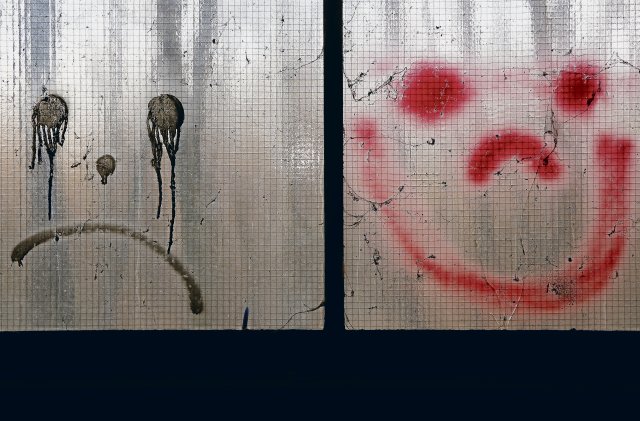In the end, even Jens Balzer can’t get the left to agree on anything.
Photo: Photocase/Mr. Nico
How can it be explained that supporters of postcolonialism “track down even the most inconspicuous ‘microaggressions’ and ‘structural racism'” in everyday life” and at the same time display an “aggressive refusal to all types of self-questioning” “what their own anti-Semitic prejudices and… stereotypes”? Why do those who rightly criticize the over-presence of toxic masculinity in all areas of life and are committed to equal rights for all genders have so much difficulty recognizing violent nationalist, Islamofascist fanatics who lie about rape and murder as “resistance” as perpetrators? ? How do you explain that the same people who feel “left-wing” and see themselves as anti-racist, who want to have an anti-discriminatory effect with a mixture of linguistic magic and regulatory rage, “react extremely irritably to any attempt to apply such rules to combat anti-Semitic stereotypes”?
In other words and more succinctly: Why did a number of “postcolonial-inspired actors” (Balzer) turn out to be anti-Semites who, after the terrorist attack on October 7th last year at the latest, demonstrated that their “awareness” and their attentiveness increased just as quickly as reliably end where Jews are affected by discrimination or are fighting for participation?
In his essay “After Woke,” the journalist Jens Balzer tries to ask such questions and answer them, which he partially succeeds in. Among other things, he undertakes excursions into the conceptual history of so-called wokeness and the origins of German studies, quotes various postcolonial theorists and analyzes the sometimes open anti-Semitism of the “Black Lives Matter” movement, which was strongly influenced by the “Nation of Islam”.
Many of Balzer’s observations are correct: For example, he is surprised at the “bitingly cold attitude toward the victims” of Hamas, the “lack of empathy” and the “armoring” that many left-wing intellectuals displayed after the terrorist attack on October 7th, as well about the sometimes more, sometimes less open idolization in left-wing circles of the radical Islamist Hamas, which – some people apparently still haven’t figured it out – “maintains a deeply patriarchal, misogynistic, homophobic and transphobic worldview.”
The author vividly describes the mutation of postcolonialism into a “truth regime” and a “quasi-religious practice” and shows what hair-raising, anti-Semitic madness that judges people based on skin color can result in the end: “In the postcolonial truth regime, in which people are strictly ‘along the color Line’ are divided into black and white, Jewish people are viewed as privileged white people and are therefore placed on the side of the oppressors or colonialists – which, by the way, also shows an old standard of anti-Semitic ideology, because this has always been the case for ‘the Jews’ as that people who direct the destinies of the world with secret or obvious privileges.
But Balzer is of course smart enough to know that the current greater threat to a reasonably liberal state like the one here does not come from the minority of “woken”, as reactionary media such as “Die Welt” would like us to believe almost every day, but from those right-wing extremists and radical conservatives who see themselves as “anti-woke” and who would rather ideologically return today rather than tomorrow to that miserable time in which the (white heterosexual) woman stood at the stove and gave birth to children while the (white heterosexual) man you mansplained the world.
Nevertheless, Balzer also sees and addresses the stupidities of the woke, queer and postcolonial milieu that sees itself as “progressive” and emancipatory, such as its grotesque tendency towards simplification, essentialization and black-and-white thinking, its idea of ”self-contained, homogeneous cultures” (and this is not the only idea that the milieu shares with the nationalist new right), its self-righteousness and “moralizing self-aggrandizement” as well as its extensive inability to self-reflect or even self-criticize.
He describes these people’s errors in thinking and also names them: the pact with (of all things) political Islam, the “unreflective celebration of the indigenous” and the romantic “fascination with stories of originality and authenticity” that have nothing to do with historical reality .
Nevertheless, Balzer wants to rehabilitate the postcolonial milieu, trying to highlight what was once progressive about the idea of ”wokeness” (“it aims at participation and justice and successful understanding between people”), the milieu, so to speak, with the help of Jürgen Habermas’ discourse ethics ( “discourse free of domination”) and the invocation to please come to one’s senses again, to drive out the authoritarian, fanatical and sectarian. I’ll put it this way: I don’t currently believe that this can succeed. But I’m also a pessimist.
Jens Balzer: “After Woke”, Matthes & Seitz, born, 105 pages, 12 €.
Become a member of the nd.Genossenschaft!

Since January 1, 2022, the »nd« will be published as an independent left-wing newspaper owned by the staff and readers. Be there and support media diversity and visible left-wing positions as a cooperative member. Fill out the membership form now.
More information on www.dasnd.de/genossenschaft
judi bola online sbobet88 sbobet88 judi bola online
